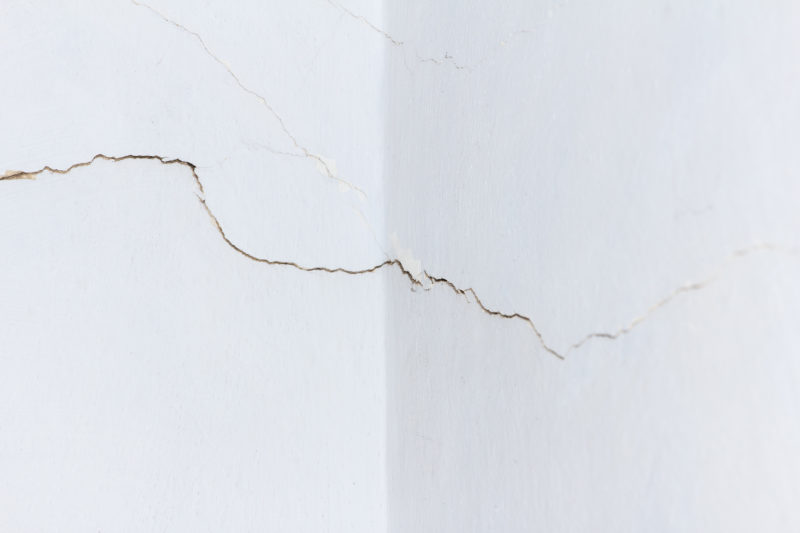Cracks in your home’s walls can be alarming, but they often serve as a signal of underlying issues that need attention. In most cases, wall cracks are a sign of shifting or settling in the foundation, moisture problems, or even normal wear and tear as the house ages. If you live in areas like Arlington, Fort Worth, or Grapevine, Texas, where the soil is known to shift, it’s important to identify the cause of these cracks to prevent more serious structural damage.
Common Causes of Cracks in House Walls
Cracks in the walls of your home can develop for several reasons, and understanding these causes is the first step in addressing the issue. While not all cracks indicate a major problem, some could be a sign of serious underlying damage that needs prompt repair.
One of the most common reasons walls crack is due to foundation settling. As homes age, the soil underneath them shifts, causing the foundation to settle. In regions with clay-heavy soils like North Texas, this is particularly common. These soils expand when wet and contract when dry, putting stress on the foundation and the structure above. As the foundation settles unevenly, cracks can form in the walls.
Temperature changes also play a role. When the weather fluctuates between hot and cold, materials like wood, drywall, and plaster can expand and contract, leading to cracks. This is especially true in climates with extreme seasonal changes, where building materials undergo frequent temperature-induced stress.

Moisture issues can also contribute to wall cracks. Excessive moisture in the soil or inside your home can cause the materials used to build your walls to weaken or deteriorate. Leaking roofs, plumbing issues, or poor drainage around the foundation can lead to cracks, as water can erode the structure over time. Water damage weakens walls, which then results in cracks.
Signs That Your Wall Cracks May Be Serious
Not all wall cracks are cause for alarm, but it’s essential to distinguish between minor cracks and those that signal more significant problems. Small hairline cracks may simply be a cosmetic issue, while larger, more severe cracks could indicate structural concerns.
One sign that your wall cracks may be serious is their direction and size. Horizontal cracks, for example, are often more concerning than vertical cracks, especially if they’re wider than 1/8 inch. Horizontal or stair-step cracks along walls or in the foundation often suggest significant foundation movement, which could lead to more serious structural problems if left unchecked.
Cracks around doors and windows are another red flag. If you notice cracks forming at the corners of window and door frames, it could be a sign that your home is experiencing uneven settling. Doors and windows may become misaligned, or they may stick when opening or closing—both of which are signs of foundation shifting.
If the cracks are accompanied by other issues like sloping floors, sticking doors, or windows that won’t open properly, you might be dealing with a larger foundation problem. In this case, it’s important to seek professional advice to assess the extent of the damage.
Foundation Movement and Wall Cracks
One of the leading causes of wall cracks is foundation movement. As mentioned earlier, foundation settling is common, but it becomes a problem when the settling is uneven. In regions like Arlington and Fort Worth, the expansive clay soil is notorious for shifting. During dry periods, the soil shrinks, causing the foundation to settle lower. When it rains, the soil expands, pushing against the foundation and causing it to lift. This constant movement leads to cracks in both the foundation and the walls of your home.
Foundation movement can also result from poor drainage around your home. If water is not properly directed away from the foundation, it can accumulate and saturate the soil. This excess moisture can weaken the foundation, leading to cracks in walls and floors. In severe cases, it may even cause parts of the foundation to sink, leading to more noticeable and widespread cracking.
Signs that your foundation is causing cracks in your walls include:
- Cracks wider than 1/8 inch.
- Horizontal or stair-step cracks.
- Cracks near doors and windows, along with misaligned frames.
- Gaps between walls and the ceiling or floor.
Preventing Wall Cracks in Your Home
While some cracking is inevitable as your home settles, there are steps you can take to minimize the risk of significant damage. Regular home maintenance and addressing potential issues early can help prevent more serious problems down the road.
One key step in preventing wall cracks is maintaining a consistent moisture level around your foundation. Installing gutters and downspouts to direct water away from the foundation is crucial, especially in areas with heavy rainfall. You can also use soaker hoses around your home during dry periods to keep the soil evenly moist, which helps prevent excessive shrinking and expansion.
Regularly inspecting your home’s foundation is also important. Check for cracks in the foundation itself, as these often lead to cracking in the walls. If you notice any significant changes in the structure of your foundation, it’s a good idea to contact a foundation repair professional for an assessment.
Finally, if you’re dealing with trees near your home, consider the impact of their roots on your foundation. As tree roots grow and search for moisture, they can disturb the soil beneath your home, leading to foundation shifting and cracks in your walls. Planting trees a safe distance from your foundation and installing root barriers can help minimize this risk.
If you’re looking for professional help to diagnose or repair cracks in your walls, Discount Foundation Repair Specialists is here to assist homeowners in Arlington, Fort Worth, and Grapevine. Contact us today to ensure your foundation remains strong and your home stays safe from further damage.





